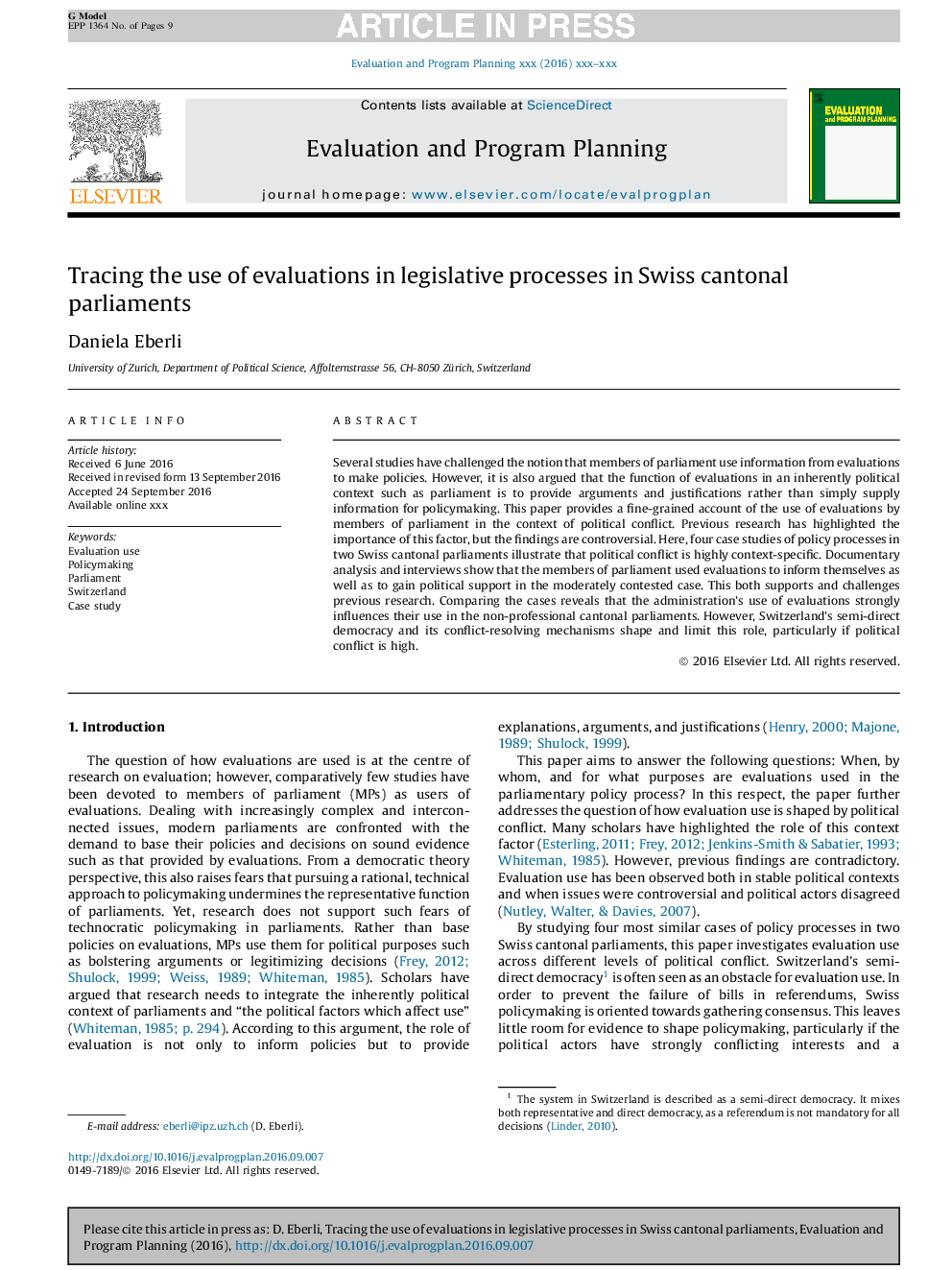| Article ID | Journal | Published Year | Pages | File Type |
|---|---|---|---|---|
| 6792006 | Evaluation and Program Planning | 2018 | 9 Pages |
Abstract
Several studies have challenged the notion that members of parliament use information from evaluations to make policies. However, it is also argued that the function of evaluations in an inherently political context such as parliament is to provide arguments and justifications rather than simply supply information for policymaking. This paper provides a fine-grained account of the use of evaluations by members of parliament in the context of political conflict. Previous research has highlighted the importance of this factor, but the findings are controversial. Here, four case studies of policy processes in two Swiss cantonal parliaments illustrate that political conflict is highly context-specific. Documentary analysis and interviews show that the members of parliament used evaluations to inform themselves as well as to gain political support in the moderately contested case. This both supports and challenges previous research. Comparing the cases reveals that the administration's use of evaluations strongly influences their use in the non-professional cantonal parliaments. However, Switzerland's semi-direct democracy and its conflict-resolving mechanisms shape and limit this role, particularly if political conflict is high.
Related Topics
Health Sciences
Medicine and Dentistry
Public Health and Health Policy
Authors
Daniela Eberli,
